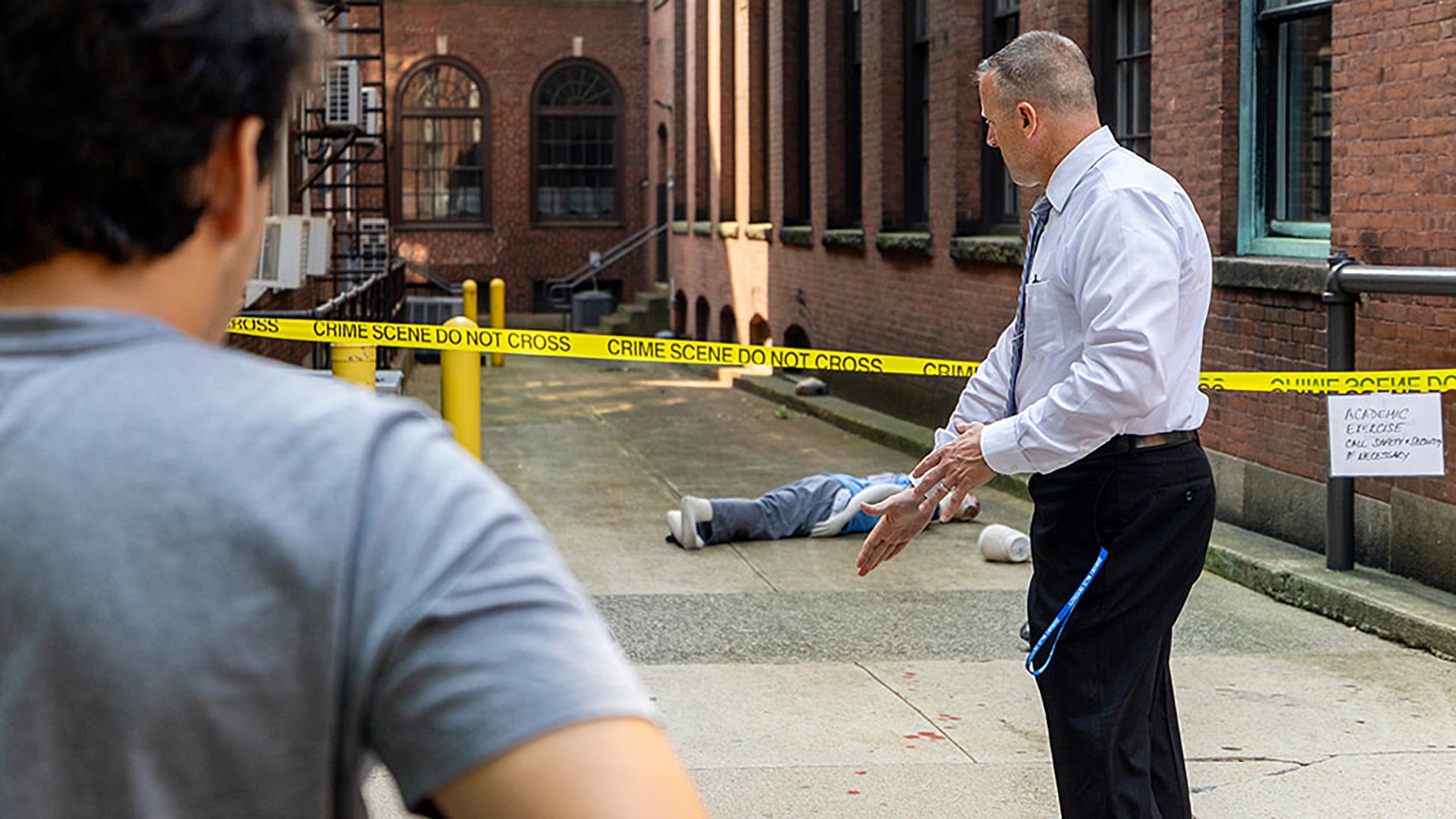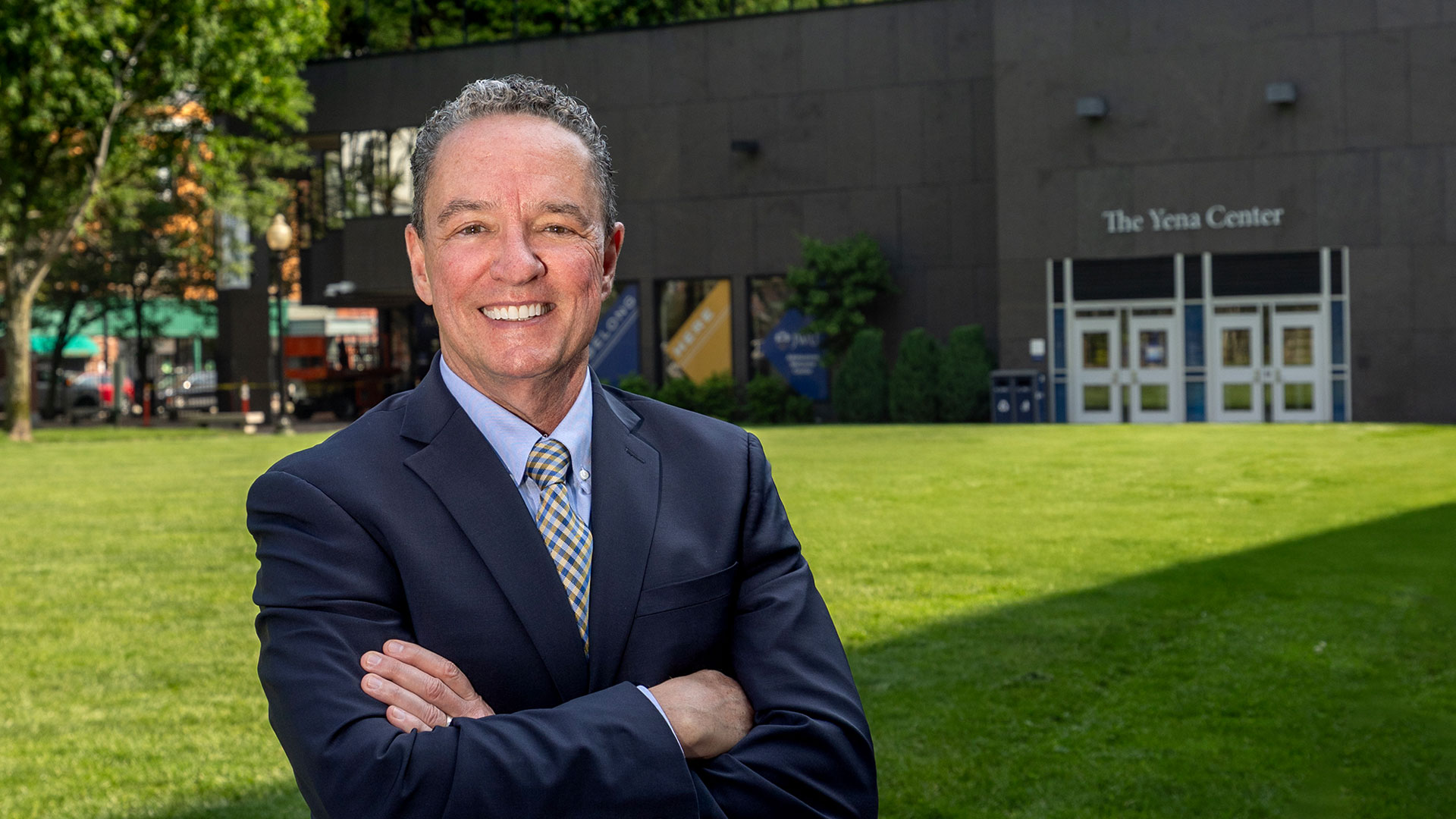Call of Duty: JWU’s Emergency Management Response to COVID-19
When a pandemic strikes, it helps to have a superhero like Christopher Harwood. The director of Emergency Management for Johnson & Wales University is a Coast Guard veteran with a specialty in biological safety and a retired response, enforcement and incident management commander. He was also the incident commander for a bioterrorism exercise at Brown University during the 2009 H1N1 flu outbreak, when he consulted with the state’s top infectious disease experts who taught at its Warren Alpert Medical School. When there was a national meningitis spike several years ago, Harwood orchestrated a response scenario at JWU should an outbreak occur in the community; he even played sick at Student Health Services.
“The 4 phases of emergency management are preparedness, mitigation, response and recovery.”
An adage attributed to Benjamin Franklin is especially apt in emergency management: “If you fail to plan, you plan to fail.” As a critical member of the university’s international travel risk management committee, Harwood is a hawk watching everything from tsunamis to terrorist attacks — any risks to our students here and overseas. “In early to mid-January, we were watching the COVID-19 situation in Italy and China because we had students abroad, as well as international students here in the States,” he says. “We knew it was coming.” Harwood updated the university’s pandemic response plan and the first formal planning meeting in the emergency operations center occurred in early February. It was a full house with representatives from Residential Life, Health Services, Student Services, Dining Services, General Counsel and other departments.
 Decisions had to be fluid due to a shape-shifting present and a murky future. In blitz mode, study abroad students were brought home, with measures to quarantine anyone who might have been exposed to the novel coronavirus. The planning group secured accommodations for students who couldn’t return home when most of them left the residence halls mid-March.
Decisions had to be fluid due to a shape-shifting present and a murky future. In blitz mode, study abroad students were brought home, with measures to quarantine anyone who might have been exposed to the novel coronavirus. The planning group secured accommodations for students who couldn’t return home when most of them left the residence halls mid-March.
The planning group consulted with Institutional Technology on how to deliver remote instruction through the spring term (and establish work from home capability for staff and faculty). Instructional Design & Technology, along with College of Online Education, staff guided professors along a digital path for their courses. It was triage mode: “We rolled out an entire video conferencing platform to the entire community in about a day and a half,” says Keri Green, JWU’s director of Instructional Design & Technology. Due to their experiential nature, it was decided that culinary labs take a sabbatical and resume July 6.
“The four phases of emergency management are preparedness, mitigation, response (which we’re in now) and recovery,” says Harwood. “All these pieces had to be put together in a rapid fashion.” Luckily, this superhero has extra powers: He regularly confers with fellow emergency managers who are members of the Rhode Island Association of Emergency Managers (RIAEM) Higher Education Consortium; Harwood was vice-president of RIAEM when the consortium was created.
One challenge those other universities don’t face? JWU resides in five states (four branch campuses plus the equine center in Massachusetts), so risk assessment and decisions are guided by a patchwork of mandates. How does Harwood oversee a nerve center that spans the country? “I’ve gotten very adept at Skype!”
While students bow to dreams deferred, the university has pivoted by recasting events to a virtual realm. April’s career expo transitioned to a successful virtual one while some students arranged virtual internships during the summer; another career expo was scheduled for early May with nearly 50 organizations represented. April’s alumni reunion weekend offered virtual campus tours and Taste of JWU replaced by Cook with JWU with chef-led cooking shows, for starters. Admissions has offered virtual open houses where prospective students could participate in Q&As with academic deans, as well as interact live with faculty, students and graduates. Meanwhile, Student Involvement and Leadership hosts Netflix parties and webinars on stress reduction (that help the community avoid stress eating to the quarantine fifteen). To mark May’s rite of passage, special commencement videos will celebrate graduates from each campus.
Harwood remains unflappable, but there is one prop absent from his emergency toolkit — a crystal ball. He cannot answer the $60 million question: When will this end?’ “The reason governors have daily briefings is because the situation is changing daily,” he says. “People are looking for specific answers, but we are not there yet — not until there’s enough testing and a vaccine. In my opinion, we may not be back to normal until Fall 2021.”



